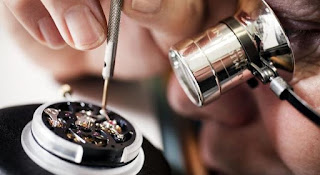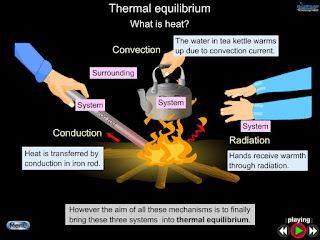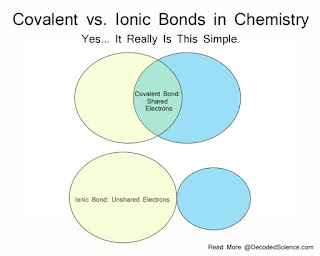People for science.
Dear Friends,
Hi guys, So far what we have learnt in field of science is nothing when we look on to people who really work without the knowledge of what exactly is their work, but still their contributions towards science has made our lives easy. How can a guy who has not studied Mechanical engineering can service our bikes?
We must know that presence of mind indicates presence of knowledge. I have realized this when ever i get my vehicle fixed/watch fixed, even at times when i just glance through kitchen, I learn that there are several things which people knew much before ASTM rules came into existence. In order to understand todays concept, let me give you 3 live examples.
Example 1:
Watchmakers.
In order to fix our watch, the watchmakers generally use a magnifying glass to inspect the defect and rectify by replacing the cell/ suitable screw. The way how he tests the gadget is nothing but a real example for Visual inspection test. ( NDT) i.e., ASTM E 1368 came into picture in the year 1898, but we had these people servicing much before 1898..
Example 2:
Puncture Shop.
Imagine you are travelling on road, and if the vehicle gets punctured, we get our wheels fixed at puncture shop. The service guy, normally inflates the tube and then, he immerses into the water to test the affected region. For his knowledge, if he finds some bubbles, it indicates the damaged region. From our view, the bubble is formed due to capillary action due to air, surface of tire and water. This test is nothing but Liquid penetration test which is ASTM E 1417.
Salt & Pickles.
With out salt and pickle, it's really very difficult to have curd rice. This salt and pickle are not stored in metallic containers, Why?? What is reason behind storing them in glass/ceramic container?? The answer behind this is a very big test for corrosion of steels, i.e., Salt spray test which is termed as ASTM B 117. The idea behind storing pickles in a glass container is known to us much before ASTM B 117.
Though people don't follow the exact standards of ASTM, but they know how to get things done.
What amuses me is, there are several inspections which we find by people who are not into this line. There are several things which are beyond ASTM. Science is not what we know, Science is what we experience. That's the beauty of science.
Finally,I arrive at a question, how do we judge people?? To be a scientist, is branding necessary?? If then, what do you call people who applies science much better than aspirants of science.
This quest remains as thirst for knowledge!
Bottom Line: If Science is religion, then scientists are omnipresent.
Hi guys, So far what we have learnt in field of science is nothing when we look on to people who really work without the knowledge of what exactly is their work, but still their contributions towards science has made our lives easy. How can a guy who has not studied Mechanical engineering can service our bikes?
We must know that presence of mind indicates presence of knowledge. I have realized this when ever i get my vehicle fixed/watch fixed, even at times when i just glance through kitchen, I learn that there are several things which people knew much before ASTM rules came into existence. In order to understand todays concept, let me give you 3 live examples.
Example 1:
Watchmakers.
In order to fix our watch, the watchmakers generally use a magnifying glass to inspect the defect and rectify by replacing the cell/ suitable screw. The way how he tests the gadget is nothing but a real example for Visual inspection test. ( NDT) i.e., ASTM E 1368 came into picture in the year 1898, but we had these people servicing much before 1898..
Watchmaker knows how to fix our watch.
Example 2:
Puncture Shop.
Imagine you are travelling on road, and if the vehicle gets punctured, we get our wheels fixed at puncture shop. The service guy, normally inflates the tube and then, he immerses into the water to test the affected region. For his knowledge, if he finds some bubbles, it indicates the damaged region. From our view, the bubble is formed due to capillary action due to air, surface of tire and water. This test is nothing but Liquid penetration test which is ASTM E 1417.
Liquid Penetration: A mechanic knows how to apply science better than us.
Example 3:Salt & Pickles.
With out salt and pickle, it's really very difficult to have curd rice. This salt and pickle are not stored in metallic containers, Why?? What is reason behind storing them in glass/ceramic container?? The answer behind this is a very big test for corrosion of steels, i.e., Salt spray test which is termed as ASTM B 117. The idea behind storing pickles in a glass container is known to us much before ASTM B 117.
Tasty yummy pickles are preserved in ceramic jars.
Though people don't follow the exact standards of ASTM, but they know how to get things done.
What amuses me is, there are several inspections which we find by people who are not into this line. There are several things which are beyond ASTM. Science is not what we know, Science is what we experience. That's the beauty of science.
Finally,I arrive at a question, how do we judge people?? To be a scientist, is branding necessary?? If then, what do you call people who applies science much better than aspirants of science.
This quest remains as thirst for knowledge!
Bottom Line: If Science is religion, then scientists are omnipresent.





